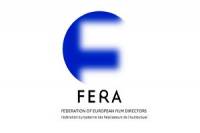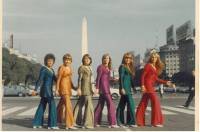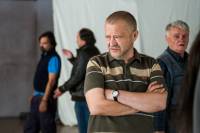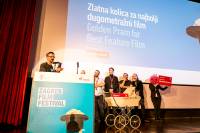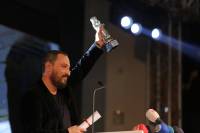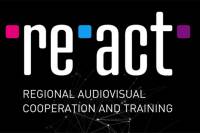FERA welcomes JURI vote results on Broadcasting Regulation on territorial exclusivity and direct injection, while urging for a stronger stance on authors’ remuneration
Press releases 21-11-2017
FERA welcomes the result of the committee vote in the EU Parliament today, as Members of the Legal Affairs (JURI) Committee voted to limit the extension of the so‑called “Country of Origin” principle to news and current affairs programmes. Exclusive territorial licensing, cornerstone of audiovisual works’ investment structure, distribution and promotion throughout Europe, is therefore preserved.
FERA also welcomes the inclusion of a fix on the issue of direct injection in the JURI report, an important step in securing fair remuneration due to authors. Giving legal protection to rightholders in direct injection cases must guarantee that both broadcasters and operators require separate authorization for their respective exploitations in this process, and that the latter apply the collective management regime of retransmissions.
European authors such as film and TV directors rely on secondary payments (i.e. share of the exploitation revenues of their works) to make a living as freelancers, developing projects and covering for unpaid work in-between contracts. Since the implementation of the 1993 Satellite and Cable Directive, an essential part of their secondary payments is ensured through the collective management regime for retransmissions.
We therefore urge all the parties involved in the upcoming trilogue to ensure that authors’ right to equitable remuneration for the retransmission of their work is reaffirmed, and that the mandatory collective management regime for the exercise of the retransmission right that already applies to cable networks is upheld.
Pauline Durand-Vialle, FERA CEO, said: "The EU film and directors community welcomes the EP Legal Affairs Committee position on territorial exclusivity: the widespread concerns of the EU audiovisual industry were heard. We call on the EU Institutions to follow in the EP footsteps in that regard, but also to provide European authors with a sustainable legal framework ensuring their fair remuneration for the retransmission of their works".
Contact : Pauline Durand-Vialle – This email address is being protected from spambots. You need JavaScript enabled to view it. – +32 25 44 03 33
CEPI welcomes the JURI Committee's vote and its approach towards territorial exclusivity
Press releases 21-11-2017On the 21st of November 2017 the JURI Committee voted on the European Commission’s “Proposal for a Regulation laying down rules on the exercise of copyright and related rights applicable to certain online transmissions of broadcasting organisations and retransmissions” and limited it to news and current affairs programmes.
CEPI, the Coordination of European Independent Producers, welcomes this result and thanks the Members of the Parliament for their conscious and careful attention towards preserving the work of small and medium enterprises across Europe. Limiting the scope of Article 2 of the legislative proposal to “news and current affairs” will help preserve the work and effort of all European independent producers, ensuring the raise and the continue creation of European content which is diverse and competitive, to the benefit of European consumers.
The Chairman of CEPI, Mr Jerome Déchêsne, welcomed the result and said, “This is crucial to not only preserving the audiovisual independent production made in Europe, but also to helping them shape and engage with a European legislative landscape which protects the importance of sustainable cultural and economic growth in the audiovisual sector and strengthens cultural diversity, one of the Union's most important values”.
CEPI strongly encourages to endorse and to further support this approach in the forthcoming weeks.
Tallinn Black Nights Film Festival announces two Lifetime Achievement Award winners
Festivals 20-11-2017
Estonian actor Tõnu Kark and Finnish director and producer Jörn Donner to receive honorary Lifetime Achievement Awards.
84-year-old Jörn Donner is a renowned Finnish film director and producer, who has produced nearly 60 films, including Ingmar Bergman’s Fanny And Alexander, winner of four Academy Awards in 1984, including the Best Foreign Language Film award. Donner gave a memorably hilarious acceptance speech at the ceremony.
His director’s slate comprises of more than 20 films. He began his directing career with A Sunday In September, that won the best debut award in Venice. His other well-known works include Black On White (1968), Portraits Of Women (1970) and documentary Fuck off! Images of Finland (1971).
Donner is one of the founders of the Finnish Film Institute and the director of the Swedish Film Institute from 1978 until 1982. He has worked as a film critic, including the biggest daily paper at the time, the Dagens Nyheter.
Black Nights screened Donner’s retrospective during its 1998 edition. His latest film, the documentary Fuck Off 2: Images Of Finland will have its international premiere at Black Nights Film Festival.
He will receive the honorary award at the screening of Fuck Off: Images of Finland (1971) which will kick off the 48-hour marathon screening of Finnish cult films.
69-year-old Tõnu Kark played pivotal roles in the new wave of Estonian cinema in the1980’s, including films such as: Ideal Landscape (1981) and The Adventurer (1983).
Kark has played in over 60 Estonian films, including the Soviet box office hit Unmarked Merchandise (Gruz bez markirovki, 1984) that sold more than 35,9 million tickets that made him well-known in several Soviet countries.He has been awarded the best male actor in Estonia several times and once in Latvia.
Kark will receive the award on the 20th of November at the world premiere of The Green Cats, the new tragicomedy directed by Andres Puustusmaa, that is part of the festival’s Estonian Film Competition. Kark plays one of the two leading roles alongside the Russian actor Sergey Makovetski.
IDFA – International Documentary Film Festival Amsterdam, the much-awaited event in the festival calendar, takes place November 15-26, 2017 this year. The large group of attending East European film professionals is headed by the Institute of Documentary Film. IDF representatives will help filmmakers navigate the event and promote their films among international industry professionals.
Czech Delegation
Czech documentary filmmakers have a lot to celebrate at the 30th IDFA. The IDFA competitions include two Czech documentaries: Nothing Like Before that follows four teenagers in a small border town, and The Russian Job about a Swedish manager trying to salvage the iconic Soviet car manufacturer Lada. The prestigious Masters section will present the controversial The White World According to Daliborek, an incisive portrait of a Czech neo-Nazi. At Docs for Sale, these three films will be introduced to film professionals along with an additional four with Czech involvement – Helena Třeštíková’s A Marriage Story produced by Negative in co-production with Czech TV, the Latvian-Czech documentary film D Is for Division by Davis Simanis (producer Guntis Trekteris, co-producer Radim Procházka), Tereza Nvotová’s creative documentary The Lust for Power produced by PubRes (Slovakia) in co-production with HBO Europe and Negativ (Czech Republic), and Batalives by Karolína Zalabáková and Petr Babinec (producer Lukáš Gargulák, Cinebonbon).
IDFA also hosts a pitching session organized by the European Broadcasting Union (EBU). On November 19, the Czech filmmaker Bohdan Bláhovec and producer Anna Herza Tydlitátová will pitch their project Satanic Girls, developed for Czech TV by Petr Kubica's production team.
East Silver Delegation
Two documentary films awarded at this year’s Ji.hlava IDFF will also be screened in Amsterdam. The winner of the Silver Eye Award for Best Feature Documentary, the Austrian film Sand and Blood (dir. Matthias Krepp) will compete in the student section. The other one is the Russian documentary The Wall (dir. Dmitry Bogolubov). Both films are part of the East Silver Market, focused on Central and East European documentary films. Outstanding documentaries can be picked up by festival programmers, distributors or sales agents. This year’s 14th East Silver Market took place October 24-29 at the Ji.hlava IDFF and the video library included 317 latest documentary films in festival and TV format from nearly thirty countries. IDFA will also present several documentary films that were included in the past editions of the East Silver Market:
Call Me Tony, Klaudiusz Chrostowski | Poland| 2017 | 64 min
City of the Sun, Rati Oneli | Georgia, USA, Qatar, Netherlands | 2017 | 104 min
The Dead Nation, Radu Jude | Romania | 2017 | 83 min
Gwendolyn, Ruth Kaaserer | Austria | 2017 | 85 min
The Ugliest Car, Grzegorz Szczepaniak | Poland | 2017 | 47 min
Untitled, Michael Glawogger, Monika Willi | Germany, Austria | 2017 | 108 min
Volte, Monika Kotecka, Karolina Poryzala | Poland | 2017 | 14 min
Included in the East Silver delegation are also the following documentaries: the Macedonian film Avec l’Amour (dir. Ilija Cvetkovski, Atanas Georgiev), the Ukrainian-German Delta (dir. Oleksandr Techynskyi), the Georgian-Swiss Didube, The Last Stop (dir. Shorena Tevzadze), and the Russian documentary feature You Rock (dir. Evgeny Grigorev).
Ex Oriente Film Delegation
The IDFA Forum takes place November 20-22 and gives filmmakers a unique opportunity to pitch their projects to distributors, international fund, TV and online platform representatives. Ex Oriente Film provides a stipend for its current and past projects, which allows selected participants to have first-hand experience with such a large international market and Central Pitch, and facilitates their preparation for the East Doc Platform pitch in March next year. They can also arrange meetings with international professionals who can learn about their project, a great first step in establishing valuable contacts for a future partnership.
This year’s IDFA Forum is attended by 58 projects from 23 countries, including three projects from Central and Eastern Europe: the long-awaited documentary film Occupation 1968 co-produced by Peter Kerekes, Hypermarket Film, ELF Pictures, Agitprop, Silver Frame; the Lithuanian project in development Killer, Penguin, Tom, Doll Face by Tomas Tamosaitis, and The Labudovic Reels by the Serbian filmmaker Mila Turajlić. Turajlić is a regular participant of IDF’s activities, having attended the East Doc Platform, Ex Oriente Film 2016 and the East Silver Market. Her first documentary feature Cinema Komunisto was part of the East Silver Caravan.
Other Attending Projects
Documentary projects in the late production or post-production stage find a great launchpad in the East Doc Platform where each year over 120 filmmakers and producers present their projects to more than 100 key industry players. Looking to succeed at IDFA this year, the past participants of the East Doc Platform include the already mentioned Czech films The Russian Job (dir. Petr Horký) and Nothing Like Before (dir. Lukáš Kokeš, Klára Tasovská), as well as several others: The Ancient Woods (dir. Mindaugas Survila, Lithuania, 2017), In Praise of Nothing (dir. Boris Mitic, Serbia, Croatia, France, 2017) and The Other Side of Everything (dir. Mila Turajlić, Serbia, France, Qatar, 2017). “The East Doc Platform is the largest documentary market for Central and Eastern Europe and it is the flagship event for filmmakers and producers in the region. Our task is to introduce potential co-producers, TV networks, festivals or distributors to new documentary projects in order to make their future life in the industry circuit easier,” says Tereza Šimíková, East Doc Platform Manager.
The festival line-up includes two films that attended the Ex Oriente Film workshop. The documentary feature competition will screen Over the Limit by the Polish filmmaker Marta Prus. The Polish filmmaker and cinematographer Piotr Rosolowski also completed the Ex Oriente Film workshop and IDFA’s Best of Fests section will present his documentary film The Prince and the Dybbuk co-directed by the German filmmaker Elwira Niewiera.
The Institute of Documentary Film also works hard to get creative documentaries closer to viewers. KINEDOK is a unique project focused on the alternative distribution of creative documentaries. Screenings take place in seven European countries and in unconventional venues, such as clubs, coffeehouses, parks, disused plants or chapels. The 2016 selection included Toto and His Sisters (2014) by the Romanian filmmaker Alexander Nanau. His film attends this year’s IDFA as part of The Visual Voice section. The Latvian filmmaker Ieva Ozolina presents her latest documentary film Solving My Mother (2017) in the IDFA Competition for First Appearance. Her previous films include the successful My Father the Banker (2015) that first attended the 2015 East Silver Market and was later selected for the 2016 KineDok.
LJUBLJANA: Columbus by Kogonada won the Best Film award of the 28th LiFFe fest on 18 November 2017, while Men Don’t Cry by Alen Drljević racked up yet another award, winning the FIPRESCI prize.
ZAGREB: Alen Drljević’s coproduction between Bosnia and Herzegovina, Slovenia, Croatia, Germany Men Don’t Cry continued its festival success story, winning the Best Film award at the 15th Zagreb FF, which concluded on 19 November 2017.
BYDGOSZCZ: Body and Soul by Ildikó Enyedi with DoP Máté Herbai won the Main Competition of the 25th Camerimage film festival at the closing ceremony on 18 November 2017.
MALATYA: More / Daha directed by Onur Saylak won the Best Film Award in the National Competition of the 7th edition of the Malatya IFF at the closing ceremony on 16 November 2017. The Best Film Award of the International Competition was given to the Azerbaijan film Pomegranate Orchard by Ilgar Najaf.
ZAGREB: The deadline for applications for the RE-ACT co-development fund has been extended to 22 November 2017.
Films by Czech director Helena Trestikova and Romanian director Alexandru Solomon have been picked up by Hungary's Verzio IDFF.

